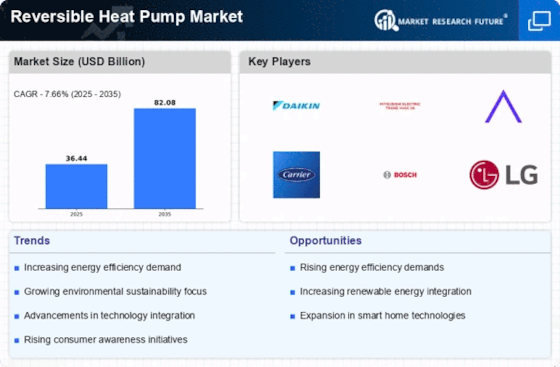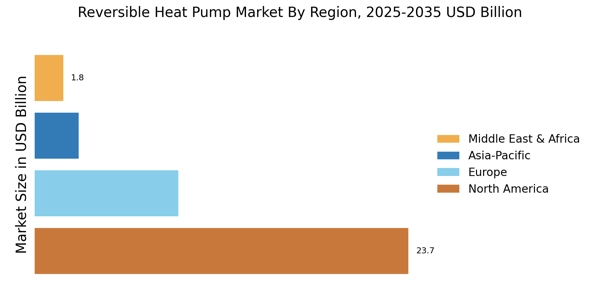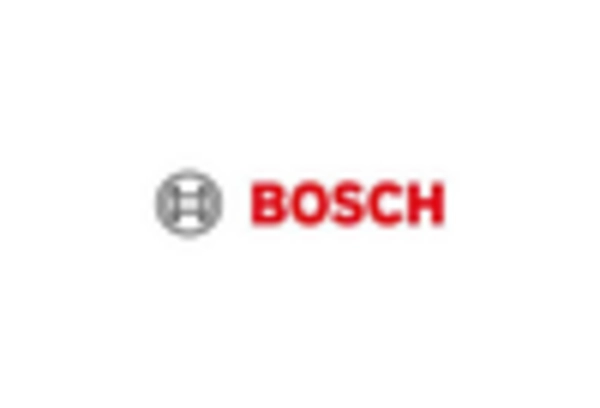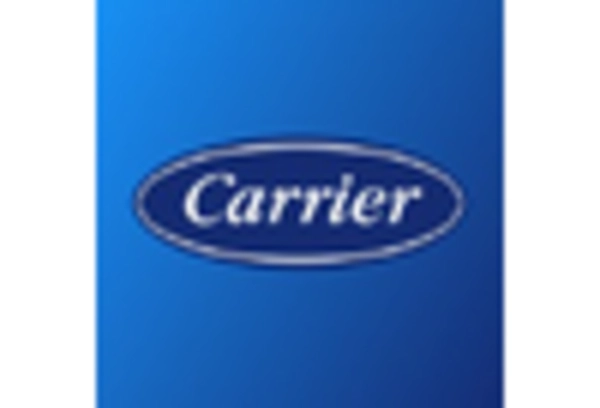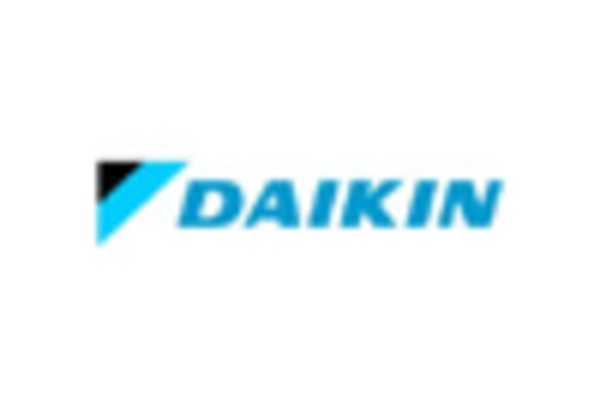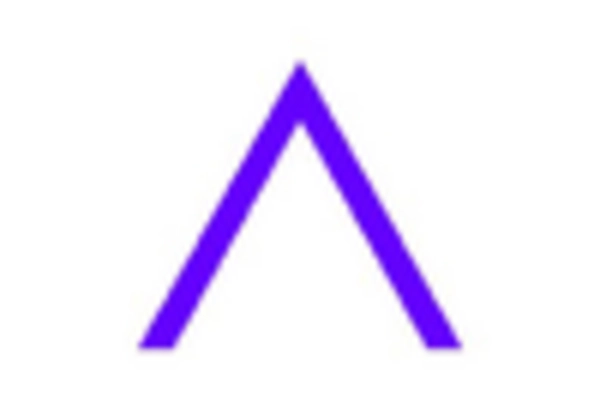Rising Energy Costs
The Reversible Heat Pump Market is significantly influenced by the rising costs of energy. As energy prices continue to escalate, consumers and businesses are seeking more cost-effective heating and cooling solutions. Reversible heat pumps, which utilize electricity to transfer heat rather than generate it, offer a more economical alternative to conventional systems. Data indicates that these systems can reduce energy bills by up to 50% compared to traditional heating methods. This cost-saving potential is particularly appealing in regions where energy prices are volatile. Consequently, the demand for reversible heat pumps is likely to increase as consumers prioritize energy efficiency and long-term savings, further propelling the Reversible Heat Pump Market.
Increased Urbanization
The Reversible Heat Pump Market is also being driven by the trend of increased urbanization. As more people move to urban areas, the demand for efficient heating and cooling solutions rises. Urban environments often face unique challenges, such as limited space and higher energy demands, making reversible heat pumps an ideal choice. These systems can be installed in compact spaces and provide both heating and cooling, catering to the diverse needs of urban dwellers. Additionally, urban areas are increasingly focusing on sustainable development, which aligns with the benefits offered by reversible heat pumps. This trend suggests a robust growth trajectory for the Reversible Heat Pump Market as urbanization continues to shape energy consumption patterns.
Environmental Awareness
The Reversible Heat Pump Market is benefiting from a growing awareness of environmental issues among consumers and businesses. As climate change concerns rise, there is a noticeable shift towards sustainable heating and cooling solutions. Reversible heat pumps are recognized for their lower carbon footprint compared to fossil fuel-based systems, making them an attractive option for environmentally conscious consumers. The market is projected to grow as more individuals and organizations seek to reduce their environmental impact. Furthermore, many governments are offering incentives for the adoption of eco-friendly technologies, which is likely to enhance the appeal of reversible heat pumps. This trend indicates a promising future for the Reversible Heat Pump Market as sustainability becomes a priority.
Technological Innovations
The Reversible Heat Pump Market is witnessing rapid advancements in technology, which are enhancing the performance and efficiency of these systems. Innovations such as variable speed compressors, advanced refrigerants, and smart controls are making reversible heat pumps more effective and user-friendly. These technological improvements not only increase the efficiency of heat pumps but also expand their applicability in various settings, including residential, commercial, and industrial environments. The integration of smart technology allows for better energy management and optimization, which is becoming increasingly important in today's energy-conscious market. As these innovations continue to emerge, they are expected to drive further growth in the Reversible Heat Pump Market.
Energy Efficiency Regulations
The Reversible Heat Pump Market is experiencing a surge in demand due to stringent energy efficiency regulations being implemented across various regions. Governments are increasingly mandating higher efficiency standards for heating and cooling systems, which has led to a growing preference for reversible heat pumps. These systems are designed to provide both heating and cooling, making them versatile and energy-efficient solutions. According to recent data, the energy efficiency of reversible heat pumps can be up to 300% higher than traditional heating systems, which aligns with regulatory goals aimed at reducing energy consumption and greenhouse gas emissions. As a result, manufacturers are focusing on developing advanced technologies that meet these regulations, thereby driving growth in the Reversible Heat Pump Market.


